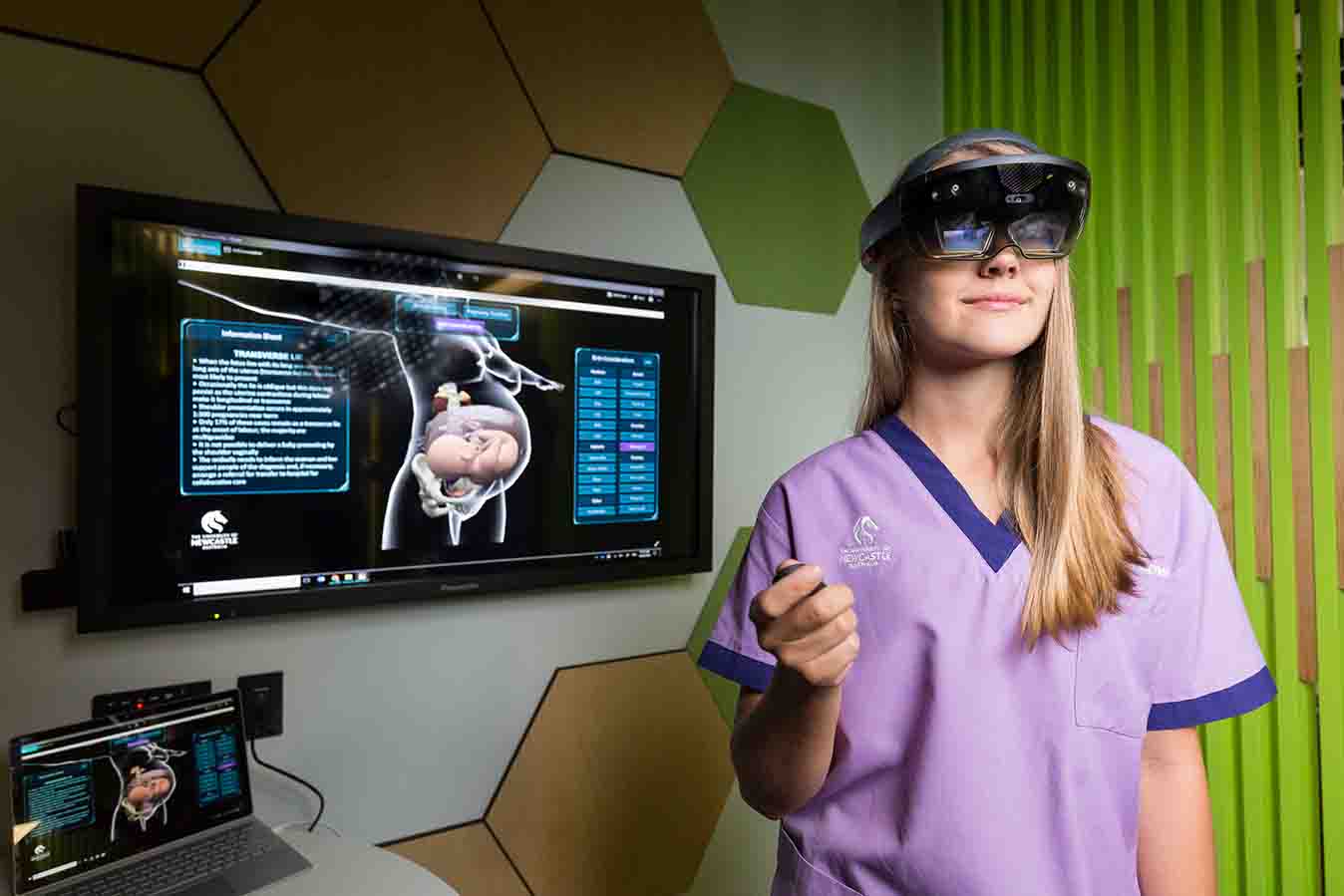University of Newcastle researchers are leading the world in ground-breaking virtual reality (VR) technology in the nursing and midwifery curriculum.
The world-first technology was presented at the Professional Day of the NSW Nurses and Midwives’ Association 73rd annual delegates’ conference recently.
Project lead and Lecturer in Midwifery at the University of Newcastle (UON) Donovan Jones said the education landscape was changing in a hurry.
“It’s [technology] is limitless and it’s coming and we need to embrace it. Everyone has a handheld smart phone, we are no longer giving people information. Students can check the information instantly.”
UON’s VR designed Neonatal Resuscitation program was the first of its kind in the world and attracted 32 million people two weeks after its launch last year.
“We are the first in the world, we are not following in this we are leading the way,” Mr Jones said.
Road to Birth has been trialled since early 2018 at UON, complementing traditional midwifery teaching methods, including life-size dummies and clinical experience.
“It’s getting harder to avail our students of clinical situations. The clinical environment is ad hoc. The abrupt reality is that the first resuscitation our students experience is often an actual resuscitation,” Mr Jones said.
Through a digital headset, Road to Birth allows users to follow the stages of pregnancy with a detailed, realistic and 3D life-size figure in front of them, where gestation can be explored and observed.
Using a pregnancy timeline, key anatomy and circulatory systems there is commentary from experienced midwives at each stage of the pregnancy and users can investigate the internal changes as the baby develops.
The aim of immersive technology was to fully immerse the student in the experience as if they were in the clinical lab or setting, Mr Jones said.
“With Road to Birth, the educator can pop on their HoloLens and project the imagery in front of the class as they walk through the simulation. Our students can then either immerse themselves fully with the VR headset or take the application home on their device to learn in their own time, at their own pace.”
First year midwifery students come into the program and within the first trimester were going out and witnessing their first birth, Mr Jones said.
“They’re exposed to situations that have the potential to be confronting. Technology is bridging the gap for healthcare professionals who have to make life and death decisions. I want people to be able to fail safely. We need students to be able to look and say ‘I need to develop that skill’ in order for them to become safe healthcare professionals.”
UON has implemented Road to Birth through HTC Vive and Microsoft HoloLens headsets, as well as mobile app. It is available for Android, iOS and PC.
The headsets were currently worth about $7,000 each.
“We’re not about to go out and buy 20 but they are becoming cheaper and will come out at about $130 at the end of the year,” Mr Jones said.








